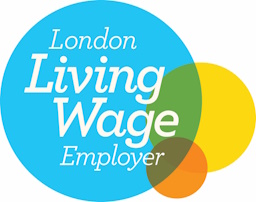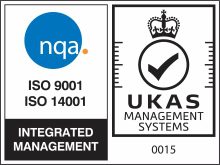Policy Spotlight with Declan: Stafford Borough Local Plan – have your say
If you live or work in Stafford Borough, you’ve probably noticed the expansion of both residential and commercial developments across the area. A good example of this is the new housing development at Marston Gate on the A34, at the north edge of Stafford, sitting over the way from what will be the new Pets at Home distribution centre.
Stafford Borough stretches from Blythe Bridge in the north, down to Haughton and Brocton in the south and includes the towns of Stafford, Stone and Eccleshall. Stafford Borough Council is now consulting on the Local Plan 2020-2040 Preferred Options document, which seeks views on draft policies and proposals for new development across the borough over the next 20 years.
You have the chance to share your views about how new levels of housing and development should be distributed, as well as the opportunity to comment on proposed development allocations such as Stafford Station Gateway and a new garden community at Meecebrook, near to Yarnfield and Eccleshall. This development will deliver 3,000 new homes and 15 hectares of employment land.
Stafford Borough is a great place to live and work, with exceptional connectivity (particularly by rail) and a highly skilled workforce. The local population is growing and there is a need to strike the right balance in building new homes but also making sure that there is a sufficient supply of employment land across the area.
The chambers will be calling for a high-quality housing mix, including affordable and high value accommodation. Attracting new employers into the area will need to be supported by a broad, sustainable and ‘open door’ strategy for regeneration and inward investment, with more quality employment sites and good connectivity to keep people and goods moving freely across the area.
The consultation runs until 12noon on Monday 12th December and you can share your views through the following link:
https://www.staffordbc.gov.uk/local-plan
If you have an interest in planning and infrastructure, you’d be very welcome to join the Chamber Planning & Infrastructure Forum, which meets again on Thursday 26th January 2023. For further details, please email me :
- Published in News
Why smart meters are a smart decision for your business this winter
Firms of all sizes are currently confronted by a host of challenges, from soaring energy bills, labour shortages, spiralling inflation, and climbing interest rates.
Did you know that a smart meter could help your business this winter and beyond?
A smart meter could give you valuable insights into how your business uses energy, day and night, helping you to identify ways to reduce your energy use.
Installing a smart meter is also a positive step in taking control of business outgoings. Once installed, smart meters digitally measure how much energy you’re using and send your meter reading directly to your energy supplier at agreed intervals, putting an end to estimated bills.
Firms with 10 employees or less could be eligible. To find out more please click here. You can also contact your energy supplier or broker.
- Published in News
Sara’s Blog: Remembrance Sunday, Chambers’ Business Manifesto & have your say via our QES
This Sunday is Remembrance Sunday. The current conflict in Europe has only served to reinforce the reason we take time each year to remember those who made the ultimate sacrifice so that we could enjoy the freedom we often take for granted.
On behalf of the Chambers, I thank everyone who gave their lives for us, veterans, our current armed forces and all those who selflessly dedicate their lives to serving others.
BCC Manifesto
The British Chambers of Commerce has sent the Prime Minister a Business Manifesto to get firms through the tough months ahead and then power the UK’s economic recovery.
Businesses are the very bedrock of the economy but currently face a host of challenges which threaten the survival of many; eyewatering energy bills, labour shortages, 40-year high inflation, and rising interest rates. The Bank of England is now also forecasting a two-year recession.
Research indicates business confidence has plummeted to alarmingly low levels, not seen since the height of the pandemic. The political and economic uncertainty over the past few months and the turbulent financial conditions following the Government’s mini-budget have damaged this even further.
We are now on borrowed time, and the new Prime Minister must step up to the plate. Businesses can’t afford to see Government make any knee-jerk decisions that damage long-term growth. It must create stable conditions for businesses to invest and grow, otherwise, we will be starting from a very weak base to power our recovery once global economic conditions stabilise.
The BCC’s latest quarterly economic survey highlighted an alarming drop in business confidence and conditions, with key economic indicators falling back to Covid-crisis levels. One in three firms reported a decrease in cashflow, while 25% reported a decrease in domestic sales.
In the wake of the October fiscal statement, the BCC conducted a snap poll of almost 500 firms, to assess the extent to which the Chancellor’s plans would impact their investment intentions.
Overall, only 6% of businesses said they would increase their investment, while 37% said they would decrease it because of the fiscal statement.
The BCC’s Business Manifesto sets out 17 key policies designed to tackle the challenges facing businesses across the economy, the labour market, international trade and Net Zero.
Top of the list for urgent action are:
Investment in infrastructure
Government must prioritise long-term growth by financing public projects, with a particular emphasis on green and digital infrastructure. As a result of the multiplier effect, investing in public infrastructure, such as the HS2 rail link, will have a high value impact on growth, stimulating local economies and creating jobs across the UK.
Energy support for businesses
Rising energy costs is the number one concern cited by businesses. Government must provide certainty on how the energy support package will work from April so ubusinesses can plan for the future.
Tackling the tight labour market
There are currently 1.2 million unfilled jobs in the UK labour market, meaning businesses are turning work away. Government must promote the creation of a skilled workforce by offering tax breaks to businesses that invest in training and upskilling. The UK also needs an immigration system that caters to the needs of the labour market. A reform of the Shortage Occupation List is urgently required to help businesses fill job vacancies when they cannot recruit locally.
Promoting export-led growth
More than a quarter (28%) of SME exporters reported decreased sales in Q3 of this year. International trade presents significant opportunities for UK businesses to expand and grow. However, barriers to trade must be removed to allow firms realise their full trading potential. The UK Government must work with the European Commission to reach a negotiated solution on business compliance burdens with the Protocol on Ireland/Northern Ireland.
Business confidence has plummeted to alarmingly low levels, not seen since the height of the pandemic. The political and economic uncertainty over the past few months, and the turbulent financial conditions following the Government’s mini budget have damaged this even further.
In the remaining period of this Parliament, the BCC is urging the Government to strike the right balance for growth without compromising our great public institutions that so many of us rely on.
People run businesses and businesses rely on people. This Business Manifesto offers solutions, including cost-free options, to get our economy moving in the right direction again.
You can view the full Business Manifesto here: Business Manifesto.pdf
Have your say as our Quarterly Economic Survey opens for Q4
And so it is timely that we have just released our own quarterly economic survey for Q4. I do hope that you can complete it to help us inform policymakers on the challenges facing businesses in our area.
The information you provide will help to shape policy thinking as the data is shared with the BCC, Government departments including HM Treasury and the Cabinet Office as well as the Bank of England.
We are keen to hear from firms of all shapes and sizes to create an accurate picture of the current business landscape.
I understand your time is precious, even more so now, so thank you to all those who complete the survey.
If you want to talk to us about any business issues, including funding, you can call our switchboard on 01782 202222 or call the Stoke and Staffs Growth Hub Helpline on 0300 111 8002 or email: info@staffordshirechambers.co.uk
- Published in News
Seven steps to improve your business credit score
Being denied credit can be bad news for your business, especially if you need finance in order to grow. If your business has been refused credit or struggled to secure new finance, you’ll know how that can impact your credit rating.
Experian has compiled a list of seven regular habits that form good business practices that can help build towards a higher business credit score.
- View your business credit report to understand the positive and negative factors in your history and plan the best path for progress.
- Make a note of suppliers’ payment terms and plan payments, so they are on time. Poor payment performance can indicate a business struggling to service its debts.
- File annual returns and financial accounts on time. Making more information on your business available helps suppliers, utility providers and lenders to understand it and make appropriate decisions.
- Avoid County Court Judgments. Should one occur, settle it promptly.
- Keep an eye on your personal finances. Directors’ personal credit score can be considered for new businesses when little information is available.
- Appoint a director with a strong history of running companies and a good credit score to help boost your company’s standing.
- Check and monitor the credit status of the companies you work with, so you can anticipate any supply chain problems before it affects your business.
With Experian My Business Profile, you get full visibility of your Experian credit scoring, enabling you to understand what’s affecting your company credit score.
Find out more about Experian ‘My Business Profile’ and the free trial/discount offer.
- Published in News
BCC Business Manifesto for new Prime Minister
The British Chambers of Commerce (BCC) has sent the Prime Minister a Business Manifesto to get firms through the tough months ahead and then power the UK’s economic recovery.
Businesses are the very bedrock of the economy but currently face a host of challenges which threaten the survival of many; eyewatering energy bills, labour shortages, 40-year high inflation, and rising interest rates. The Bank of England is now also forecasting a two-year recession.
The BCC’s latest Quarterly Economic Survey highlighted an alarming drop in business confidence and conditions, with key economic indicators falling back to Covid-crisis levels. One in three firms reported a decrease in cashflow, while 25% reported a decrease in domestic sales.
In the wake of the October fiscal statement, the BCC conducted a snap poll of almost 500 firms, to assess the extent to which the Chancellor’s plans would impact their investment intentions.
Overall, only 6% of businesses said they would increase their investment, while 37% said they would decrease it as a result of the fiscal statement.
The BCC’s Business Manifesto sets out 17 key policies designed to tackle the challenges facing businesses across the economy, the labour market, international trade and Net Zero.
Top of the list for urgent action are:
Investment in infrastructure
Government must prioritise long-term growth by financing public projects, with a particular emphasis on green and digital infrastructure. As a result of the Multiplier Effect, investing in public infrastructure, such as the HS2 rail link, will have a high-value impact on growth; stimulating local economies and creating jobs across the UK.
Energy support for businesses
Rising energy costs is the number one concern cited by businesses. Government must provide certainty on how the energy support package will work from April so that businesses can plan for the future.
Tackling the tight labour market
There are currently 1.2 million unfilled jobs in the UK labour market, meaning businesses must turn new work away. Government must promote the creation of a skilled workforce by offering tax breaks to businesses that invest in training and upskilling. The UK also needs an immigration system that caters to the needs of the labour market. A reform of the Shortage Occupation List is urgently required to help businesses fill job vacancies when they cannot recruit locally.
Promoting export-led growth
More than a quarter (28%) of SME exporters reported decreased sales in Q3 of this year. International trade presents significant opportunities for UK businesses to expand and grow. However, barriers to trade must be removed in order to allow firms realise their full trading potential. The UK Government must work with the European Commission to reach a negotiated solution on business compliance burdens with the Protocol on Ireland/Northern Ireland.
Presenting the BCC Business Manifesto, Shevaun Haviland, Director General of the BCC, said:
“Our research indicates business confidence has plummeted to alarmingly low levels, not seen since the height of the pandemic. The political and economic uncertainty over the past few months, and the turbulent financial conditions following the Government’s mini budget have damaged this even further.
“We are now on borrowed time, and the new Prime Minister must step up to the plate. Businesses can’t afford to see Government make any knee-jerk decisions that damage long-term growth. It must create stable conditions for businesses to invest and grow, otherwise we will be starting from a very weak base to power our recovery once global economic conditions stabilise.
“With a new Government and Prime Minister at the head of the table, it is high time we saw a long-term growth plan that involves investment in people and skills; supports businesses to adapt and thrive; and builds good relationships with our global allies to get British businesses selling again.
“In the remaining period of this Parliament, the BCC urges the Government to strike the right balance for growth without compromising our great public institutions that so many of us rely on.
“People run businesses and businesses rely on people. This Business Manifesto offers solutions, including cost-free options, to get our economy moving in the right direction again.”
- Published in News
Sara’s Blog: Interest rate rise, International Trade Week & events up to Christmas
The decision to raise the base rate to 3% comes as no surprise following the market turmoil caused by September’s mini-budget.
The Bank of England has laid down a clear marker that it intends to bring inflation down by placing further pressure on consumer demand.
But raising the interest rate is a very blunt instrument to control inflation that is largely the result of global factors, including soaring energy costs and supply chain disruption.
This is further bad news for businesses who find themselves trapped between rising costs of raw materials, energy and borrowing, and weakening consumer demand.
The Bank is now clearly indicating the UK economy is set for a prolonged recession. Chamber research shows that business confidence has been falling at an alarming rate over recent months, driven by runaway inflation.
But even as evidence of a recession mounts, cost pressures on businesses may yet continue as the energy price cap expires next April (See our event Building resilience for your business in a time of recession below).
With the Chancellor and Prime Minister both signalling that the Autumn Statement is likely to result in spending cuts and tax rises, businesses will be extremely worried about what the future holds.
It is crucial that the Government sets out a long-term plan that stabilises the economy and focuses on growth.
Glynn Jones, Deputy Agent, West Midlands and Oxfordshire for the Bank of England will be the guest speaker at our AGM on 30th November. The AGM is open to all Chamber members and you can book here: Staffordshire Chambers of Commerce Annual General Meeting – Staffordshire Chambers
More information on the Bank of England’s decision to raise interest rates can be found here.
This past week has been International Trade Week, highlighting all the support and guidance available to potential and seasoned exporters and importers, through the Chambers and The Department for International Trade.
At Staffordshire Chambers, every week is International Trade Week for our International Trade team who offer a complete solution to international trade operations – with award-winning guidance, documentation and declaration support from our expert team who have helped thousands of Staffordshire businesses to trade globally over many years.
Services on offer include export documentation, certificates of origin, EUR1s and attested invoices, customs declarations and a wide range of international trade training.
They also offer advice and guidance on any new legislation and systems such as registration with the new digital customs declaration system (CDS), to be able to import any products into the UK.
To find out more General international trade queries call the International Trade Centre team on 01782 224405 or email allison.tomlinson@staffordshirechambers.co.uk
Now, we may be into the last two months of 2022 but there are still plenty of great Chamber events with opportunities to network, showcase your business or just have fun.
Our next speed networking session takes place on 17th November at Commerce House. If you haven’t been to speed networking before you are in for a treat. It’s a chance to talk to over 40 other businesses in about an hour, presenting yourself and your business and making connections who can help you.
On 24th November you can boost your plans to protect your business at our seminar – Building resilience for your business in a time of recession.
With inflation soaring, interest rates rising and fuel bills increasing, planning is vital.
Chamber patrons and leading national law firm Freeths LLP will deliver an informative webinar giving practical tips on ways that businesses can best protect themselves during a recession.
The Staffordshire Skills Summit takes place on Friday 25th November with discussions around the new Local Skills Improvement Plan (LSIP) and an exclusive talk from Kelly Nicholls, the CEO of TechSkills. We now have a real opportunity to catalyse partnership across the skills and employability sector, and I would strongly urge anyone affected by skills shortages and wanting to have a say on the LSIP agenda to attend.
The event takes place at the brand-new Catalyst Building at Staffordshire University and breakfast is included.
Finally, our hugely-popular Chamber quiz, is back – this time with a festive twist. We’ll be hosting Quizmas with DJH Mitten Clarke on 6th December at Port Vale, finding out who’s the smartest Staffordshire enterprise as we welcome back guest host, Matt Hustwit of DJH Mitten Clarke.
Teams of up to six people can enjoy a two-course meal, charity raffle and put their general knowledge to the test.
I would urge early booking events to avoid disappointment. View our full range of events and book here: Events Archives – Staffordshire Chambers
If you want to talk to us about any business issues, including funding, you can call our switchboard on 01782 202222 or call the Stoke and Staffs Growth Hub Helpline on 0300 111 8002 or email: info@staffordshirechambers.co.uk
- Published in News, Uncategorized
How to cope with Covid-19 business debts – guest blog with Begbies Traynor
The coronavirus pandemic tested business owners and demanded adaptability in the face of rapidly evolving Covid-19 trading restrictions. As the financial health of UK businesses took a severe blow, a series of government-backed loan schemes were introduced as an effort to prevent a surge of insolvencies.
Although this secured the short-term future of Covid-19 hit businesses, their long-term viability now depends on their ability to keep up with the associated repayments, sometimes in addition to loans that pre-date the Covid-19 pandemic. As we adapt to a new ‘normal’, businesses are operating more flexibly than ever having weathered the Covid-19 storm, but how can they strategically manage company debts to stay afloat?
How are UK businesses faring from the effects of Covid-19?
Insolvency statistics compiled by Real Business Rescue to assess the financial health of UK businesses found 562,500 SMEs in significant financial distress for Q3 2021 – a decrease of 12.6% from the previous quarter. In the West Midlands, over 66,500 SMEs were in distress which put 330,000 jobs at risk. The research also found that overall insolvencies increased by 21% from Q2 2021 as financial support from the government tapered to an end in Q3 2021.
For a business to remain viable, directors must take steps to address company debts and fend off pressure from creditors, which may take the form of persistent late payment notices or a winding up petition.
A winding up petition is a formal request made to the court by creditors to close a business that they suspect is insolvent. It can be very difficult to regain control of the situation once a winding up order has been granted by the court and your business could be forced into liquidation. For this reason, immediate action should be taken if your business is at a ‘tipping point’ with creditors to minimise the risk of this happening.
What options are available for financially distressed businesses?
If your business is facing financial difficulties, it is imperative that you seek professional advice at the earliest opportunity, to determine the most suitable route for your business. The earlier advice is sought, the more likely the chance of a business recovering from its financial difficulties. It is the role of a licensed insolvency practitioner to discuss your options with you and provide advice as to the best way forward.
Debt recovery – If you have a backlog of payments from customers that are long overdue, it may be appropriate to use commercial debt recovery services to recover funds. This can reduce the risk of bad debt, replenish company cash flow, and work as a deterrent against debtors that are lax about payment timeliness.
Finance options – It may be the case that a cash injection is required to strengthen the position of the business and assist with long-term financial recovery. Under the circumstances, it will be necessary for a debt-laden business to reassure lenders that it’s feasible for them to meet the ongoing repayment obligations. It may be an option to borrow against existing equity, allowing the business to access more competitive lending rates, also known as refinancing.
Repayment plans
CVA – A Company Voluntary Arrangement (CVA) is a formal insolvency procedure that provides the opportunity to negotiate with creditors and agree a schedule of repayments, which effectively breaks down the company debts into affordable monthly instalments. A CVA typically lasts 3-5 years, subject to agreement from creditors.
Time-to-Pay – If your main creditor is HMRC, you can negotiate a Time to Pay arrangement to structure the business’ tax liabilities into affordable monthly payments.
Company administration- Administration is an insolvency process which involves the management of an insolvent company being transferred to a licensed insolvency practitioner, acting as administrator. Administration gives you valuable time and legal protection to help steady the business, keeping it safe from creditor pressure and threats of winding-up action.
Company liquidation – If company debts have ballooned following Covid-19, company liquidation may be inevitable to protect the financial interests of creditors. As a company director, you must seek professional advice if you suspect that your business may be insolvent, i.e., if you cannot fulfil payments as and when they fall due and if your company liabilities outweigh assets.
If you are aware that your company is out of cash, you must cease trading. If you fail to do so, this could result in an Insolvency Service investigation.
For more information or to discuss any queries you may have, please do not hesitate to get in touch.
Michaela Daly is a director at Begbies Traynor Group’s Staffordshire office, UK’s leading corporate recovery and professional services firm. Michaela is an industry renowned insolvency expert in the West Midlands area and supports financially distressed company directors with company restructuring and liquidation options.
For a free, confidential consultation, please email Michaela Daly on michaela.daly@btguk.com.
- Published in News
Staffordshire Chambers partner with Keele University to deliver local entrepreneurial support
Staffordshire Chambers is delighted to partner with Keele University to deliver local entrepreneurial support.
Designed to help budding entrepreneurs to turn their business ideas into reality, the programme offers 12 hours of support and guidance delivered through four interactive workshops.
Drawing on the experience of successful entrepreneurs, the workshops will cover key topics, from understanding your value proposition and target audience, to calculating your costs. At the end of the sessions, participants will leave with their own Business Summary and Toolkit to support the next steps in launching their business.
Available exclusively to anyone based in Stoke-on-Trent or Staffordshire who has not previously set up their own business, a new cohort will start each month until June 2023. There are three options available, each suited to a different stage of the entrepreneurial journey:
- Run by Business Advisors from the Staffordshire Chambers of Commerce, the Engaging Entrepreneurs workshops are best suited to those with some prior knowledge and experience of studying or working in business and provide an exciting opportunity to discuss and develop your business idea(s).
- In proud collaboration with Keele Univesity, the Empowering Women Entrepreneurs workshops are designed to support and inspire the next generation of women in business, providing an exciting opportunity to build relationships with other aspiring female entrepreneurs.
- Ideally suited to people interested in business and looking to develop a business idea, the Exploring Entrepreneurship workshops give you the space to ask questions, share your ideas and develop an understanding of what is required to run your own business.
Tom Nadin, Head of Projects and Business Services at Staffordshire Chambers of Commerce, said: “We are delighted to have partnered with Keele University on the Exploring Digital Entrepreneurship workshops.
“Launching your own business can be a fantastic and exciting career opportunity – and these workshops will support the development of the key skills required to be successful.
“The programme offers a holistic support package that will guide entrepreneurs through the process of launching their own businesses to give them the best start in the world of self-employment.”
Lizzie Harling, Project Co-ordinator at Keele University, said “Exploring Digital Entrepreneurship is a new and exciting opportunity for anyone wondering about what it might take to start their own business. The interactive workshops will help develop your business idea, understand what is involved in running a business and engage with successful entrepreneurs.
To find out more and view the session dates visit our website or get in touch with the Keele Gateway (01782 733001 / gateway@keele.ac.uk).
- Published in News
Businesses to receive import and export support throughout International Trade Week
Staffordshire businesses who are considering exporting for the first time are being encouraged to explore the opportunities and support available to them during International Trade Week.
International Trade Week, which runs from today, 31 October to Friday, 4 November, aims to encourage UK businesses to export and sell to the world, and showcase the long-term support that is available to help them do so.
At Staffordshire Chambers, our International Trade Centre offers a complete solution to your international trade operations – with award-winning guidance, documentation and declaration support from our experts who have helped thousands of Staffordshire businesses to go global.
Find out more about how we can help your businesses to boost its bottom line and go global by emailing tom.hammersley@staffordshirechambers.co.uk
The Department for International Trade is running a series of events throughout the week, with highlights including: Export Academy LIVE!, Green Trade and Investment Expo and the DIT Education Day. Find out more, here.
- Published in News
Sara’s Blog: Message to the new PM & Skills Summit with Staffordshire University
Congratulations to Rishi Sunak on his appointment as our new Prime Minister. He must get on immediately with the serious business of steadying the political and economic uncertainty that has been hugely damaging to business confidence.
This means setting out fully costed plans to deal with the big issues facing businesses, soaring energy bills, labour shortages, spiralling inflation, and climbing interest rates.
What is frustrating is that many businesses I talk to have full order books and work in the pipeline, but it is the factors above that are hampering progress and medium to long-term strategic planning.
We cannot afford to see any more dithering on policies – businesses need a sustainable, long-term economic plan they can believe in.
The British Chambers of Commerce (BCC) has written to the Prime Minister to set out the action needed to tackle the main challenges facing business. It is vital we see progress made in these areas to keep doors open and promote investment.
Firstly, the Government must provide more certainty on the energy support package for businesses and quickly communicate how the system will work from April. Firms need to know what support to expect in the medium and long term.
Secondly, they must fix the extremely tight labour market. Without the skilled people to do the jobs businesses need, the economy will stagnate.
Thirdly, to grow the economy, Government must set out a strategy to boost our international trade and exports.
People run businesses and businesses rely on people. The new administration must grasp that the cost of living and cost of doing business crises are two sides of the same coin.
We need a clear long-term vision of how the new Prime Minister will deal with the challenges ahead and create the business conditions that allow firms, and the communities that rely on them, to thrive.
As always please let us have your thoughts, comments and questions so that we can represent your views to the PM and Cabinet via the BCC.
Get in touch by emailing: info@staffordshirechambers.co.uk
Picking up on the second priority above around skills, I am delighted to announce that we are holding a Skills Summit in partnership with Staffordshire University taking place on Friday 25th November 2022 from 8.30am.
There will be a discussion around the new Local Skills Improvement Plan (LSIP) project, and a talk from Kelly Nicholls, the CEO of TechSkills.
Staffordshire Chambers of Commerce have been chosen by the Secretary of State for Education to lead the development and delivery of the LSIP for Stoke-On-Trent and Staffordshire and this presents us with the exciting opportunity to build upon our work with the local skills agenda and bring together employers, training providers and other key stakeholders across Stoke-on-Trent and Staffordshire to continue to respond to our skills priorities.
We are fortunate to have tremendous cooperation between businesses, schools and further and higher education providers in Staffordshire and the Chambers’ HR, Employment & Skills Forum has done some great work in addressing the skills problem locally.
The Skills Summit is a chance to build new and cement existing partnerships across the skills and employability sector, and an effective way of addressing skills challenges facing Staffordshire.
The Skills Summit takes place in the fantastic new Catalyst building at Staffordshire University and is a great opportunity to find out about the local skills agenda, contribute to its future as well as networking with new and existing business contacts.
Businesses will also be able to find out more information about the business support that Staffordshire University can offer to your business, including the opportunity of Higher-Level Apprenticeships.
The event is free and includes breakfast. Book your place here – https://staffordshirechambers.co.uk/product/staffordshire-skills-summit/
If you want to talk to us about any business issues, including funding, you can call our switchboard on 01782 202222 or call the Stoke and Staffs Growth Hub Helpline on 0300 111 8002 or email: info@staffordshirechambers.co.uk
- Published in News














